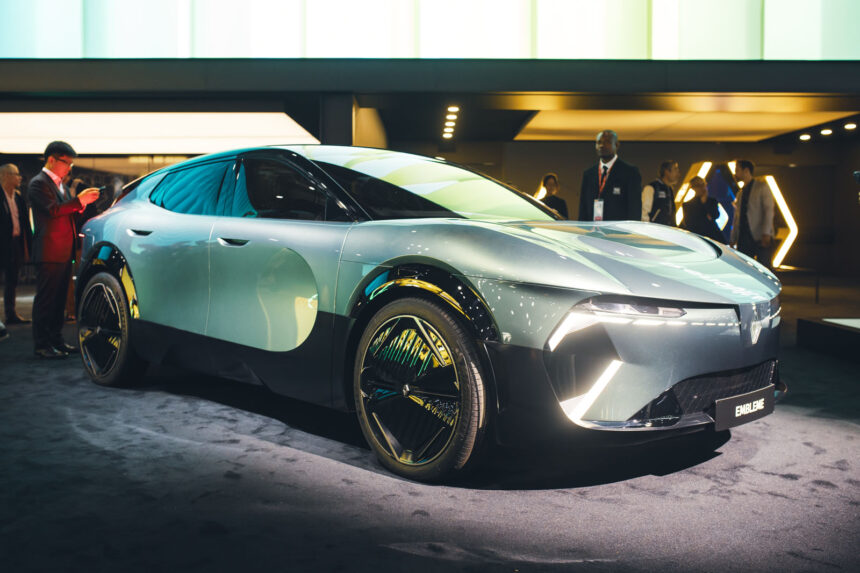Ampere, in collaboration with Renault’s EV platform developers, has introduced a new cell-to-pack battery arrangement to address the lower efficiency of Lithium Iron Phosphate (LFP) batteries compared to Nickel Manganese Cobalt (NMC) batteries. This innovation ensures that cost reductions do not compromise energy output.
By 2028, Ampere aims to further reduce costs by 50% through the introduction of a new chemistry that combines a cobalt-free cathode with a silicon anode. This new chemistry offers the energy density of NMC batteries at the cost and safety level of LFP batteries. Additionally, it enables faster charging times of just 15 minutes.
Looking ahead, Ampere plans to double the energy density of its NMC packs by replacing the silicon anode with a lithium metal alternative. This advancement is seen as a stepping stone towards solid-state technology, which Renault plans to incorporate into production cars within the next decade.
While Alliance partner Nissan has announced plans to launch a solid-state EV by 2028, Renault’s timeline remains uncertain. Ampere’s head of cell chemistry development, Mohamed Taggougui, hinted at ongoing discussions with Nissan but did not confirm a specific timeline for Renault.
Renault’s engineers are also focused on reducing integration costs, which account for a significant portion of battery expenses. By optimizing battery design and exploring cell-to-chassis arrangements in upcoming EVs, Renault aims to cut integration costs in half by 2028.
In line with its electrification strategy, Renault is committed to reducing the carbon footprint of its vehicles and operations. The Emblème concept exemplifies this commitment, with a projected lifecycle carbon footprint of just five tonnes over 15 years or 200,000km. This is a significant reduction compared to the approximately 50 tonnes emitted by a petrol-engined Captur.
Overall, Renault and Ampere’s collaborative efforts in battery technology and sustainability initiatives are poised to drive significant advancements in the EV market, offering more efficient and environmentally friendly solutions for consumers.







